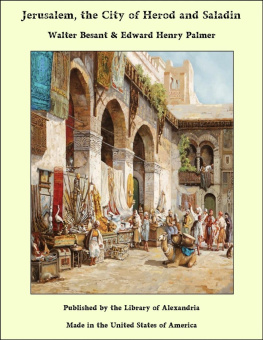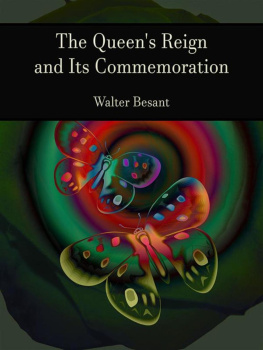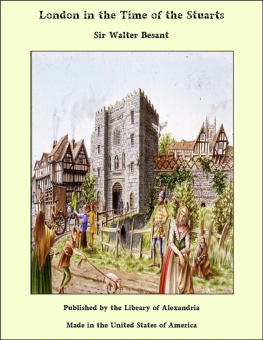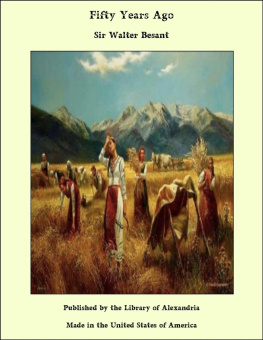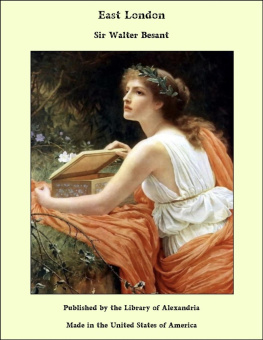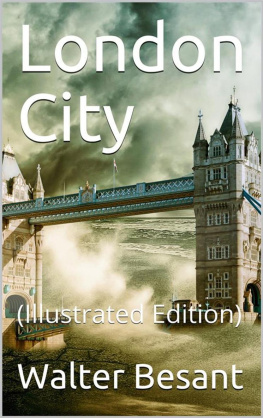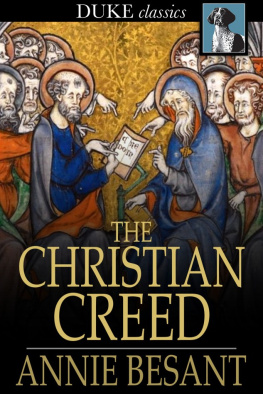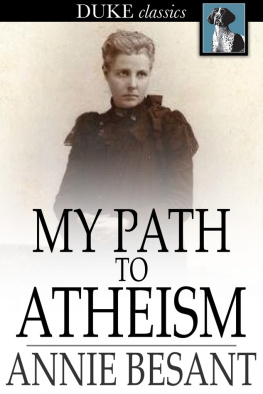PREFACE.
These papers in their original form first appeared in the Pall Mall Magazine. Additions have been made in some of the chapters, especially in the three chapters entitled The Abbey. As in the book entitled London, of which this is the successor, I do not pretend to offer a History of Westminster. The story of the Abbey Buildings; of the Great Functions held in the Abbey; of the Monuments in the Abbey; may be found in the pages of Stanley, Loftie, Dart, and Widmore. The History of the Houses of Parliament belongs to the history of the country, not that of Westminster. It has been my endeavor, in these pages, (1) to show, contrary to received opinion, that the Isle of Bramble was a busy place of trade long before London existed at all. (2) To restore the vanished Palaces of Westminster and Whitehall. (3) To portray the life of the Abbey, with its Services, its Rule, its Anchorites, and its Sanctuary. (4) To show the connection of Westminster with the first of English printers. And, lastly, to present the place as a town and borough, with its streets and its people.
I hope that, with those who have made my London a companion, my Westminster may also be so fortunate as to find equal favor.
I must not omit my acknowledgments to the Editors of the Pall Mall Magazine for the costly manner in which they presented these pages. Nor must I forget to record my sense of the pains and thoroughness brought to the work of its illustration by my friend Mr. William Patten; nor my sense of the assistance rendered me by Mr. Loftie for many consultations and suggestions; nor my thanks to the Benedictine Fathers of Downside, near Bath, who kindly received Mr. Patten and myself as their guests and showed us what a modern Benedictine House really means, and how the House at Westminster may have been during its five centuries of existence, even such as their own, a Home of Religion and Learning.
United University Club , September, 1895.
CHAPTER I.
THE BEGINNINGS.
He who considers the history of Westminster presently observes with surprise that he is reading about a city which has no citizens. In this respect Westminster is alone among cities and towns of the English-speaking race; she has had no citizens. Residents she has had,tenants, lodgers, subjects, sojourners within her boundaries,but no citizens. The sister city within sight, and almost within hearing, can show an unequaled roll of civic worthies, animated from the beginning by an unparalleled tenacity of purpose, clearly seeing and understanding what they wanted, and why, and how they could obtain their desire. This knowledge had been handed down from father to son. Freedom, self-government, corporations, guilds, brotherhoods, privileges, safety, and orderall have been achieved and assured by means of this tenacity and this clear understanding of what was wanted. Westminster has never possessed any of these things. For the City of London these achievements were rendered possible by the existence of one single institution: the Folks Motethe Parliament of the People. Westminster never possessed that institution. The history of London is a long and dramatic panorama, full of tableaux, animated scenes, dramatic episodes, tragedies, and victories. In every generation there stands out one great citizen, strong and clear-eyed, whom the people follow: he is a picturesque figure, lifted high above the roaring, turbulent, surging crowd, whom he alone can govern. In Westminster there is no such citizen, and there is no such crowd. Only once in its history, until the eighteenth century, do we light upon the Westminster folk. Perhaps there have been, here and there, among them some mute inglorious Whittingtonsome unknown Gresham. Alas! there was no Folks Mote,without a Folks Mote nothing could be done,and so their possible leaders sank into the grave in silence and oblivion. Why was there no Folks Mote? Because the land on which Westminster stood, the land all around, north, west, south,how broad a domain we shall presently discover,belonged to the Church, and was ruled by the Abbot. Where the Abbot was king there was no room for the rule of the people.
Nor could there be any demand in Westminster for free institutions, because there were no trades and no industries. A wool staple there was, certainly, which fluctuated in importance, but was never to be compared with any of the great city trades. And Westminster was not a port; she had no quays or warehouses: neither exports nor importssave only the woolpassed through her hands. There was no necessity at any time for the people who might at that time be her tenants to demand corporate action. Westminster has never attracted or invited immigrants or settlers.
Again, a considerable portion of those who lived in Westminster were criminals or debtors taking advantage of sanctuary. The privilege of sanctuary plays an important part in the history of Westminster. It is not, however, from sanctuary birds that one would expect a desire for order and free institutions. Better the rule of the Abbot with safety, than freedom of government and the certainty of gallows and whipping-post therewith.
We may consider that for five hundred years the Court and the Church, the Palace and the Abbey, divided between them the whole of Thorney Island. Until, therefore, the swamps were drained, there was no placeor a very narrow placefor houses and inhabitants on the south and west. Toward the north, between New Palace Yard and Charing Cross, houses began and grew, but quite slowly. Even so recently as the year 1755 the parish of St. Margarets had extended westward no farther than to include the streets called Pye Street, Orchard Street, Tothill Street, and Petty France, now York Street. King Street was the main street connecting Westminster with London by way of Charing Cross; and east and west of King Street, at the Westminster or southern end, was a network of narrow streets, courts, and slums, a few of which still exist to show what Westminster of the Tudors and the Stuarts used to be.
After the Dissolutionthough the Dean succeeded the Abbotthere was some concession in the direction of popular government. The Dean still continued to be the over-lord. He appointed a High Sheriff, who in his turn appointed a Deputy; the city was divided into wards, in imitation of London, with a burgess to represent each ward. The court thus formed possessed considerable powers of police; but neither in authority, nor in power, nor in dignity, could such a chamber be compared with the Court of Aldermen of London. Edward VI. granted two members of Parliament to the City of Westminster.


